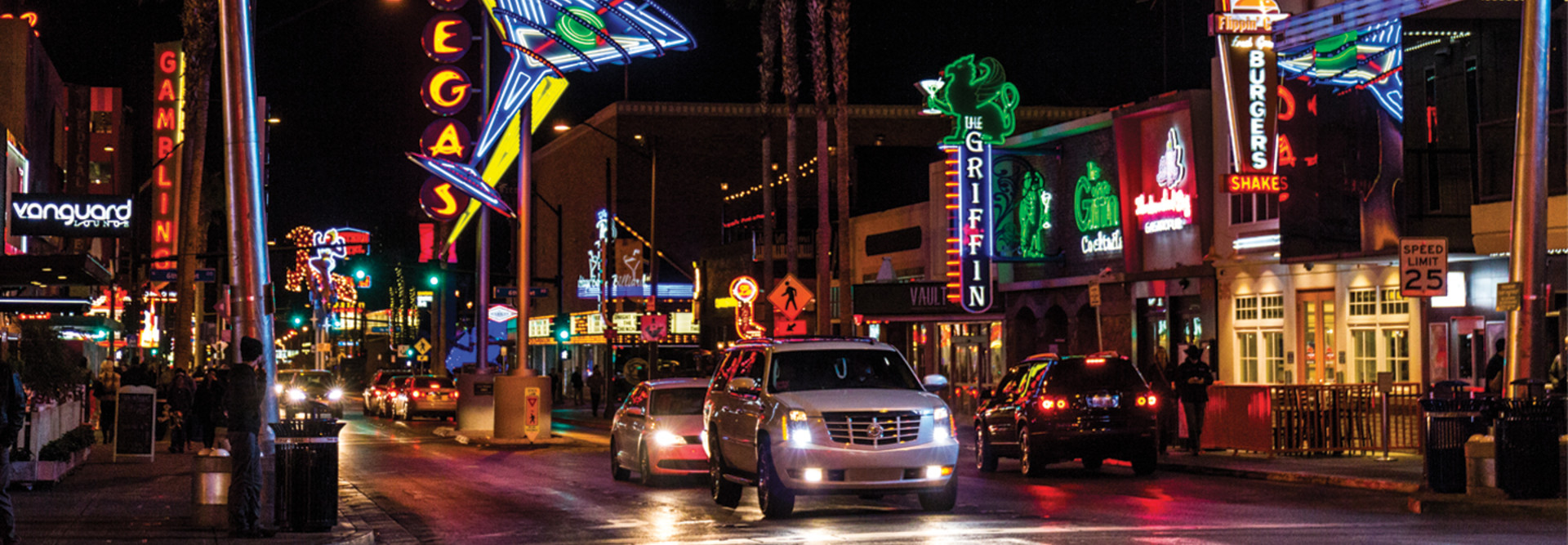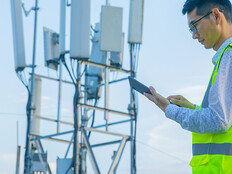Las Vegas Keeps the Pedal Down on Innovation
Through its Smart Park Initiative, the city aims to “improve public safety, while providing awareness of activity to generate usage and operations benchmarks that allow leadership to make more informed decisions,” the release states.
High-definition optical and audio sensors from NTT will now be deployed at 14 locations across the city, which will allow automated systems to notify law enforcement and maintenance personnel of safety hazards, including large crowds, gunshots, breaking glass and vandalism.
The city’s initial pilot enabled the city to increase situational awareness and lay the foundation for smart traffic management. Now, Las Vegas will have access to a dashboard to access and view sensors, data streams and analytics, so that personnel can be alerted and dispatched in a timely manner.
The NTT Accelerate Smart data platform is “a secure, distributed platform that captures data via sensors and micro data centers in the designated areas through video and sound, while also integrating historical data sources such as crime, weather and social media,” according to the release.
The platform uses cognitive analytics, including machine learning technologies, to learn normal patterns and can detect and alert authorities of anomalies. Michael Sherwood, chief innovation officer for city of Las Vegas, tells Cities Today that “we don’t think anybody in this space is really doing the kind of things that we’re doing around capturing data in parks. There’s very little data that cities have on their parks.”
The data on park usage can help improve maintenance and operations and lead to more informed decisions about park investments. Sensors can also alert authorities to activity if a park is closed.
“If the park is closed, for example, and someone is detected, an automated recording will ask them to leave, before alerting officials. Staff can use a PA system to communicate before taking further action,” Cities Today reports.
“This is a great tool where we see a lot of efficiencies as far as our public safety personnel,” Sherwood says. “You don’t have to physically drive to the park to provide safety; you can monitor it remotely.”
While there were some misgivings in the community about the technology at first, Sherwood says that “the majority of individuals embrace a higher level of safety in a public space.”
“Some people had concerns in the beginning,” he tells Cities Today. “But this is for providing safety. I think people sometimes look at it the wrong way and immediately assume it’s ‘Big Brother’ and it’s intrusive.” The city does not collect any personally identifiable information.
Automated systems like those in the Accelerate Smart project will be critical as the city evolves its smart city deployments, Sherwood tells Smart Cities Dive. “Automation is king,” he says. “We will continue to push automation as much as we can in areas that will help us gain a competitive advantage and help us service citizens more efficiently.”











